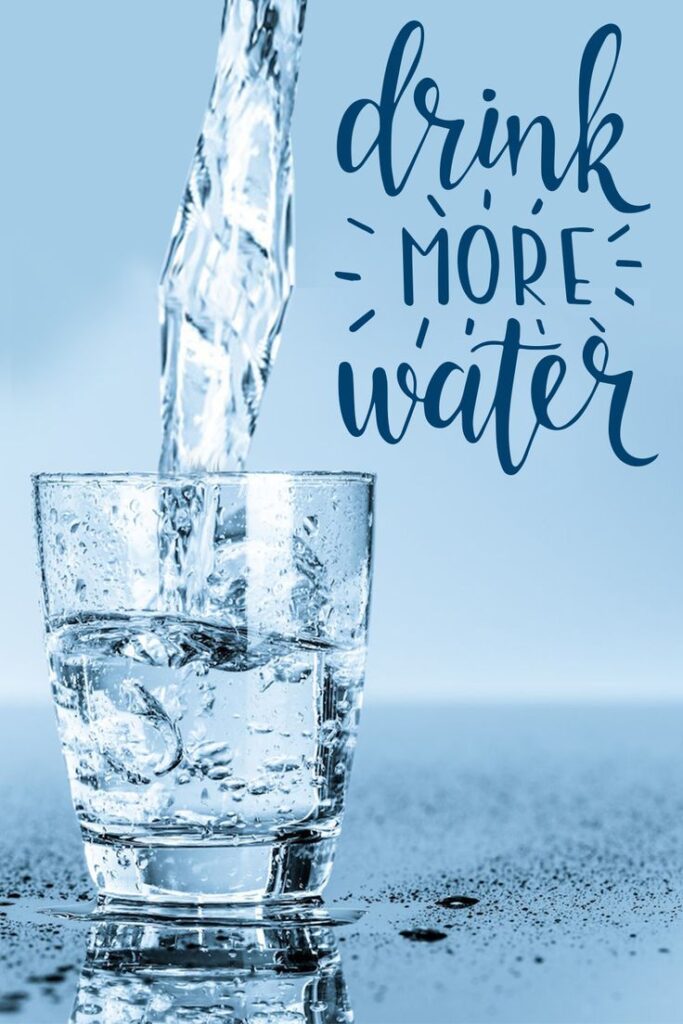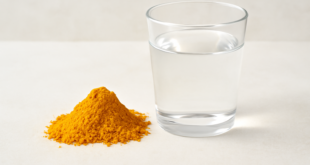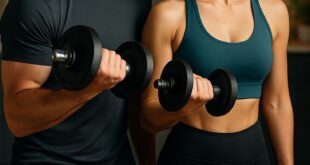
Dehydration and Physical Fitness: Symptoms and Solutions
Hydration is a critical component of any fitness routine, but many people underestimate its role in overall performance. Dehydration can negatively impact strength, endurance, and overall physical fitness. When your body is not properly hydrated, it can affect your energy levels, muscle function, and recovery. In this article, we will explore the effects of dehydration on strength and physical fitness, the symptoms to watch for, and the solutions to stay properly hydrated.
The Link Between Hydration and Physical Performance
Water plays a vital role in maintaining normal body functions. It regulates body temperature, transports nutrients, and supports joint lubrication. When you are dehydrated, these processes are hindered, which can significantly reduce your performance during physical activities. Proper hydration is especially important for strength training, cardiovascular activities, and endurance sports.
Dehydration affects your body at a cellular level. Muscle cells require water to function efficiently, and without enough water, they cannot contract or relax as effectively. This reduces the overall strength output, making it harder to lift weights or maintain stamina during exercise.
Symptoms of Dehydration During Exercise
The symptoms of dehydration can range from mild to severe and often vary depending on the individual. Some common signs that you might be dehydrated during a workout include:
- Fatigue: Feeling unusually tired or weak during exercise is one of the earliest signs of dehydration.
- Muscle Cramps: Dehydration can lead to muscle cramps or spasms due to the loss of fluids and electrolytes.
- Dizziness or Lightheadedness: A lack of water can cause blood volume to drop, leading to dizziness or even fainting in extreme cases.
- Dry Mouth or Thirst: A dry mouth or persistent thirst is a clear indication that your body is lacking fluids.
- Dark Urine: If your urine is dark or has a strong odor, it could be a sign that you’re not consuming enough water.
- Headaches: Dehydration can lead to headaches, making it harder to focus during physical activity.
- Reduced Performance: When your body is dehydrated, it struggles to keep up with physical demands, leading to a decline in strength and endurance.
How Dehydration Affects Strength and Endurance
Dehydration has a direct impact on both strength and endurance. Here’s how:
- Strength Loss: When muscles are dehydrated, they lose their ability to generate force. This can lead to reduced strength during resistance training. Additionally, dehydration can cause delayed muscle recovery, making it harder to bounce back after workouts.
- Endurance Decline: In endurance sports like running or cycling, dehydration leads to faster fatigue and reduced stamina. When the body doesn’t have enough fluids, it becomes more difficult to maintain prolonged physical activity, which can result in early exhaustion.
- Heat Exhaustion: Dehydration also increases the risk of heat exhaustion. Without sufficient fluid intake, your body has trouble regulating temperature, making you more vulnerable to overheating during intense physical activities.
Solutions to Prevent Dehydration and Improve Performance
Luckily, dehydration is easily preventable with the right strategies. Here are some simple and effective solutions:
- Drink Water Regularly: To maintain optimal hydration, make it a habit to drink water throughout the day. Don’t wait until you’re thirsty to drink, as thirst is a late indicator of dehydration.
- Pre-Hydrate Before Exercise: Aim to drink at least 16 to 20 ounces of water 1-2 hours before your workout. This will ensure that your body is well-prepared to handle the physical exertion.
- Hydrate During Your Workout: For longer or more intense workouts, sip water every 10-20 minutes. If you’re exercising for over an hour, consider an electrolyte drink to replace lost minerals like sodium, potassium, and magnesium.
- Post-Workout Hydration: After your workout, replenish the fluids you’ve lost by drinking water or an electrolyte-rich beverage. This helps to rehydrate your body and supports muscle recovery.
- Monitor Urine Color: Keep an eye on your urine color. Clear or light yellow urine is a sign that you’re well-hydrated, while dark urine indicates that you need to drink more water.
- Eat Hydrating Foods: Incorporate water-rich foods like fruits and vegetables into your diet. Foods such as watermelon, cucumbers, and oranges provide extra hydration while also offering important vitamins and minerals.
- Electrolyte Supplements: If you engage in intense exercise, consider using electrolyte tablets or drinks. These help replenish the essential salts lost through sweat, ensuring your muscles function properly.
- Avoid Caffeine and Alcohol: Both caffeine and alcohol can contribute to dehydration. Try to limit your consumption of these beverages, especially before or after workouts.
Conclusion
Dehydration can have a significant impact on your strength and physical fitness. Recognizing the symptoms of dehydration early and taking preventive measures can help you maintain optimal performance. By staying hydrated, you can improve your strength, enhance endurance, and reduce the risk of heat-related illnesses. Remember, proper hydration is not just about drinking water; it’s about maintaining a balance of fluids and electrolytes to keep your body functioning at its best during exercise. Keep these hydration tips in mind, and you’ll notice improvements in your fitness routine and overall performance.
SEE MORE: https://nutritionnest.site/wp-admin/post.php?post=557&action=edit
 healthybodyboost.net Healthy Body Boost
healthybodyboost.net Healthy Body Boost



